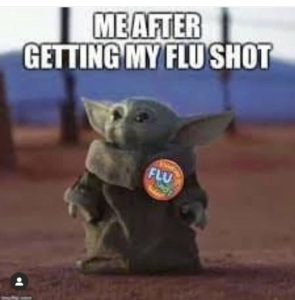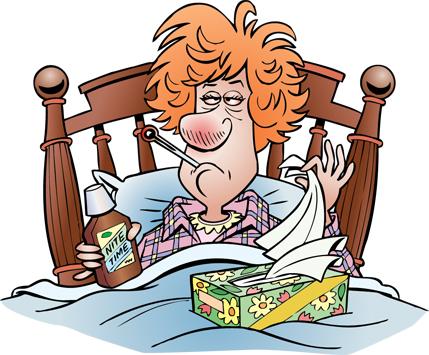 This year it is going to be difficult to distinguish between the Flu and Covid-19.
This year it is going to be difficult to distinguish between the Flu and Covid-19.
How long does the Flu last?
Flu symptoms, including fever, should go away after about 3-7 days in a healthy adult with uncomplicated influenza (flu), but you may still have a cough and feel weak and tired for up to 2 weeks.
What is the first sign of the Flu?
The early signs of the flu are usually a sudden fever, aches, weakness and a loss of appetite.
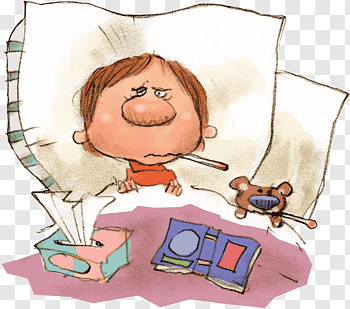
How Long do I Stay Home from Work or School if I have the Flu?
Experts generally agree that it’s best to stay home as long as you have severe symptoms, like a fever, bad cough with mucus, vomiting, or diarrhea because you may be contagious.
The CDC recommends staying home at least 24 hours after your fever goes away unless you need to leave the house for medical care or other urgent reasons.
Also, rest is an important part of getting over an illness, so that’s another reason to take it easy while you feel sick.
How does the Flu spread?

Like the common cold, the flu is caused by a virus, and it’s spread through coughs, sneezes, or even talking. Those actions can send droplets up to 6 feet away. It’s also possible to get the flu by touching something with the virus on it and then touching your mouth or nose. So frequently wash your hands.
How long am I contagious with the Flu?
You can be contagious before you even know you’re sick. The virus usually enters your body 1 to 4 days before you have any symptoms, and you can still pass it to someone for up to 5 – 7 days after symptoms appear.
Will I get the Flu if I am exposed?
Symptoms usually start within 1 to 4 days after close contact with another person with the flu. Once 5-7 days have passed, you should be safe and not get the flu from the exposure.
What are the Symptoms of the Flu?
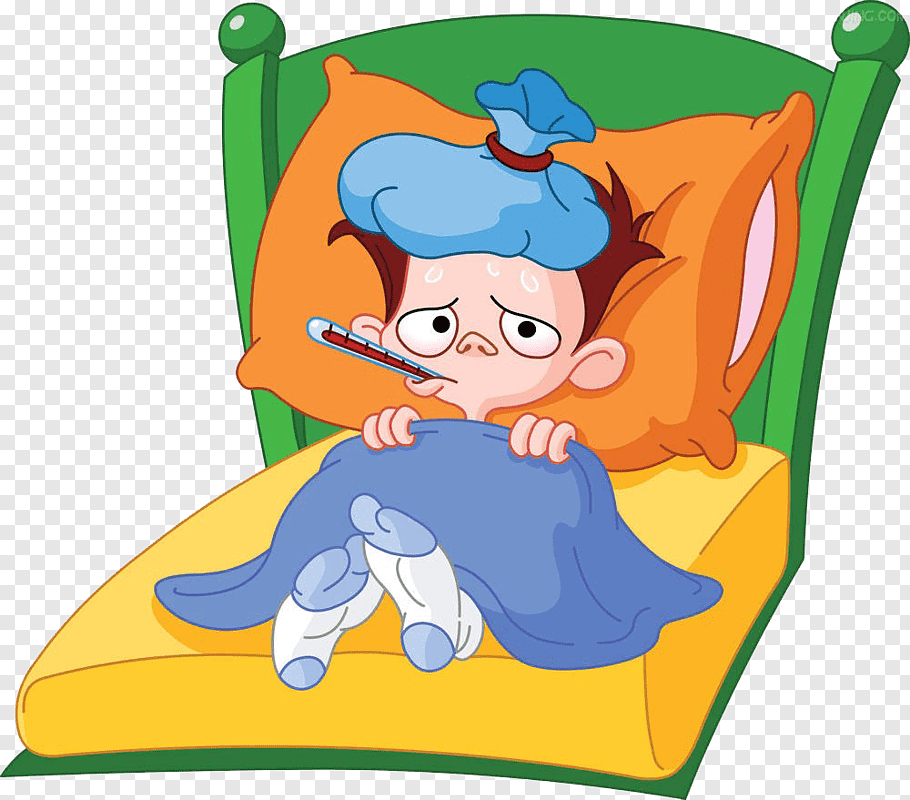
- Fever
- Muscle or body aches
- Headaches
- Cough
- Sore throat
- Loss of appetite
- Some people may have vomiting and diarrhea, but this is more common in children than adults.
- Fatigue (tiredness)
- https://www.liveonegoodlife.com/2020/why-am-i-always-tired/
How can I tell the difference between Covid-19 and Flu?
Both diseases have similar symptoms such as fever, cough, fatigue, and body aches.
Covid-19 has the unique symptom of loss of smell and taste in some people.
Both diseases are highly contagious and dangerous to the elderly and immuno-compromised.
Both diseases have diagnostic tests that can be done to make a diagnosis.
The Flu has a Rapid in-office Flu test. If it is positive for the flu, you may be able to be treated with anti-viral flu medications.
As of now, Nov 2020, Covid -19 still does not have a reliable rapid test. A Nasal Pharyngeal PCR Viral Swab is still the most accurate test and results can take 1-6 days depending on the lab.
The Flu can be prevented with an Influenza Vaccine.
How can I tell the difference between a cold and Flu?
Cold vs Flu Comparison table from CDC.gov
| Signs and Symptoms | Cold | Influenza (Flu) |
| Symptom onset | Gradual | Abrupt / Rapid |
| Fever | Rare | Yes; lasts 3-4 days |
| Aches | Slight | Yes; often severe |
| Chills | Uncommon | Fairly common |
| Fatigue, weakness | Sometimes | Yes |
| Sneezing | Common | Rare |
| Chest discomfort, cough | Mild to moderate; hacking cough | Common; can be severe |
| Stuffy nose | Common | Sometimes |
| Sore throat | Common | Sometimes |
| Headache | Rare | Yes |
https://www.cdc.gov/flu/symptoms/symptoms.htm
What Prescription Treatments exist for the Flu?
If you have a cold, unfortunately, the best advice is over-the-counter decongestants (Sudafed / NyQuil) and pain relievers (Tylenol or Motrin/Advil), along with bed rest and plenty of fluids.
If you have the Flu, fluids and rest are very important. Sip drinks you like such as water, tea, apple juice, ginger ale, or broth. Sip any liquid every time you wake up or have a chance. Staying hydrated is very important.
If your symptoms are severe, or you are at higher risk for complications, or you think you have the Flu, contact a doctor as soon as possible.

If it is determined that you have the flu, you can be prescribed antiviral medication that can shorten the duration and possibly the severity of your illness.
The antiviral medicines only work if they are started less than 48 hours after the flu starts. So go to the doctor as soon as possible.
Some antiviral medications are oseltamivir (Tamiflu), zanamivir (Relenza), peramivir (Rapivab) or baloxavir (Xofluza).
Can I take Antibiotics like Amoxicillin for the Flu?

Antibiotics are medications that fight infections caused by bacteria, but the flu is a virus.
Antibiotics are NOT an effective treatment for cold or flu.
Taking antibiotics when you have a virus may do more harm than good. Taking antibiotics when they are not needed increases your risk of getting an infection later that may resist antibiotic treatment.
Should I get the flu vaccine?
The best thing to do to prevent the flu is to get the flu vaccine each year. Health officials recommend that everyone 6 months of age and older receive an influenza vaccination every year.
What else can I do to protect myself from the Flu?
Wash your hands often. The most common way to catch the flu is to touch your own eyes, nose, or mouth with germy hands. So keep your hands clean and away from your face. Wash hands with soap and warm water for 30 seconds.

Keep your distance if you are around someone with the flu. Most deaths and hospitalizations from influenza occur in babies, the elderly, and people with weakened immune systems. But most flu transmissions come from young, healthy, unvaccinated children and adults. That’s why it’s recommended that everyone over the age of six months is vaccinated against influenza.
Get a flu vaccine.
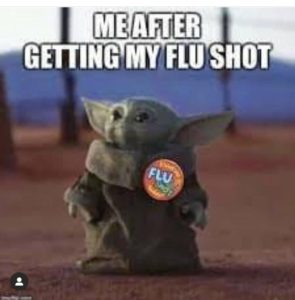
Clean commonly touched surfaces with Lysol or Clorox wipes.
Vitamin D has been shown to be helpful in boosting the immune system against the flu.
LINK Vitamin D to Boost your Immune System
Wear your face mask!

Can I get the flu from the flu shot?
Flu shots are made with dead viruses or pieces (proteins) from the flu virus.
You can NOT catch the Flu from getting a flu shot.
Your arm might hurt after the shot. You might have aches or a low fever. But you’d feel a lot worse if you caught the flu.
Live influenza vaccine (LAIV or FluMist) nasal spray contains a live, but weakened form of the virus.
If I got vaccinated last year, do I still need a flu shot?
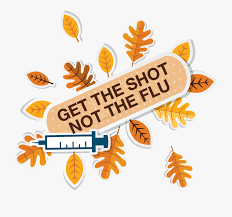
Influenza viruses change all the time. Each year, influenza vaccines are updated for the best possible protection against the virus strains that experts predict will circulate during flu season. Protection from last year’s vaccine will fade with time. Getting a flu vaccine every year is the best protection against influenza.
How can someone who got the flu shot still get the flu?
On average, flu vaccines are about 40-60 percent effective, so out of 100 people who get the vaccine, about 40-60 people will be protected. So yes, you can get the flu despite the flu vaccine; However, even if you do get the flu, the vaccine could help make the symptoms milder.
Who is at High Risk from Flu?
Anyone can get sick from the flu (even healthy people), and serious problems related to flu can happen at any age, but some people are at higher risk of developing serious flu-related complications.
This includes people 65 years and older, people of any age with certain chronic medical conditions (such as asthma, diabetes, or heart disease), pregnant women and children younger than 5 years, but especially those younger than 2 years old.

What are Complications of the Flu?

Most people who get the flu will recover in less than two weeks, but some people will develop complications (such as pneumonia) as a result of flu, some of which can be life-threatening and result in death.
Sinus and ear infections are examples of moderate complications from flu, while pneumonia is a serious flu complication. Other possible serious complications triggered by flu can include inflammation of the heart (myocarditis), brain (encephalitis) or muscle (myositis, rhabdomyolysis) tissues, and multi-organ failure (for example, respiratory and kidney failure). Flu virus infection of the respiratory tract can trigger an extreme inflammatory response in the body and can lead to sepsis, the body’s life-threatening response to infection. Flu also can make chronic medical problems worse. For example, people with asthma may experience asthma attacks while they have the flu.
References
http://www.beechams.co.uk/cold-and-flu-info/first-signs-of-cold-and-flu.html
https://www.webmd.com/cold-and-flu/stay-home-cold-flu#1
https://www.cdc.gov/flu/symptoms/symptoms.htm
https://www.mayoclinic.org/diseases-conditions/flu/diagnosis-treatment/drc-20351725
